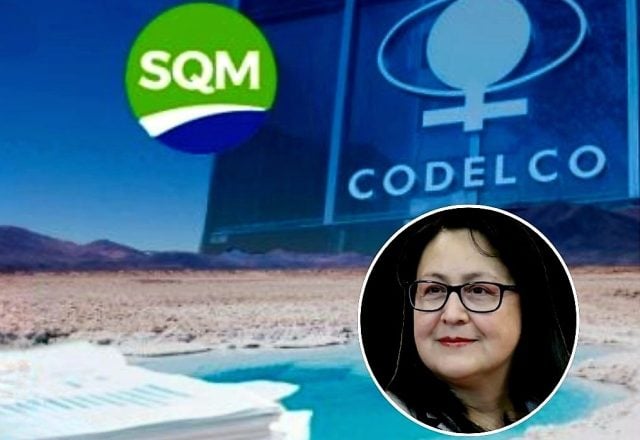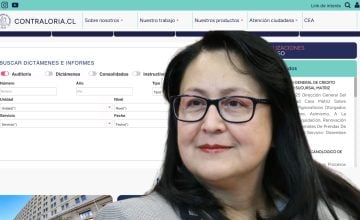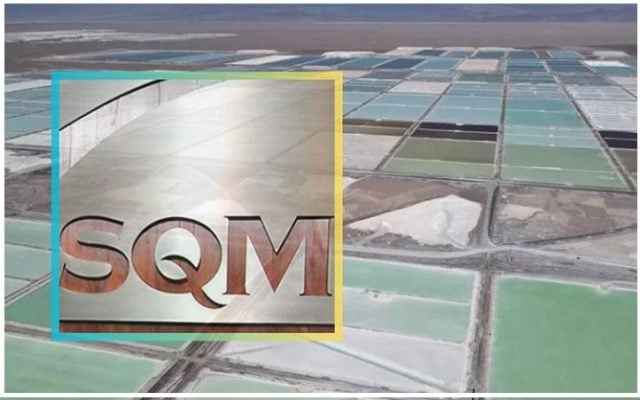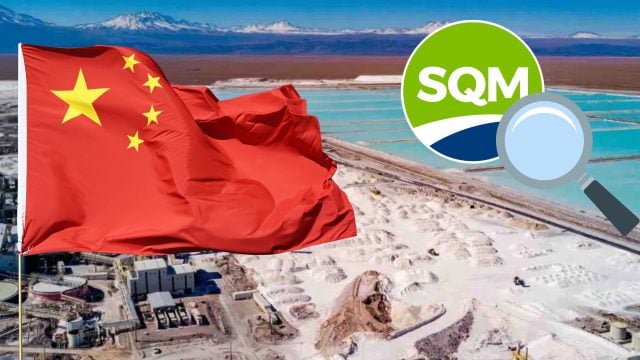Original article: Carta a Dorothy Pérez: voces académicas y sociales piden a Contraloría no tomar razón del acuerdo Codelco–SQM por “interés nacional y patrimonio de Chile”
Academics and Activists Urge Chile’s Contraloría to Reject Codelco-SQM Lithium Deal for National Interest
A diverse coalition comprising academics, intellectuals, former public officials, social leaders, workers, scientists, and legal experts has called on Chile’s General Comptroller to refrain from endorsing the resolution that seeks to approve the contracts between Codelco and SQM for lithium extraction in the Atacama Salt Flat. They argue that the agreement «violates national interest» and jeopardizes Chile’s «strategic heritage.»
The request, articulated in a letter addressed to Comptroller Dorothy Pérez, asserts that the decision before the regulatory body is not merely administrative but has historical significance with irreversible consequences for the country’s economic sovereignty.
“The fate of Chile’s lithium is in your hands, Madam Comptroller, alongside the potential for the next government to define a truly national development model, characterized by social legitimacy, transparency, and public benefit,” they stated.
It is noteworthy that following the necessary international approvals, the only local hurdle remaining is the Comptroller’s endorsement of the contracts signed by Tarar—Codelco’s subsidiary—with the Production Development Corporation (Corfo), which grants exploitation rights starting in 2031. This process began in mid-September and must conclude before the agreement’s full implementation.
An Illegal Agreement that Violates National Interest
In the letter, the signers firmly assert that “the agreement between Codelco and SQM violates national interest and compromises Chile’s strategic heritage,” insisting that it “must be annulled by the Contraloría of the Republic within its constitutional and legal powers.”
The core of this rejection is based on the legality of the pact, as it “contradicts the current constitutional and legal framework by granting a private entity rights to exploit a resource that is expressly reserved for the State.”
“Lithium is an inalienable, imprescriptible, exclusive, and non-concessible asset under Decree Law No. 2,886 and Article 19, No. 24 of the Constitution. Neither Codelco nor Corfo have the authority to grant concessions, anticipate contracts, or encumber mining rights in favor of SQM until 2060. The agreement implies an advanced cession of strategic assets without enabling legislation, violating Article 63, No. 10 of the Constitution, which requires a law for the alienation, leasing, or granting of State assets, and contravening Articles 6 and 7 that mandate public bodies to operate within their competencies, subjecting any acts outside this framework to nullity of public law. This agreement is invalid from its inception, as it constitutes a covert alienation of lithium and compromises the State’s sovereignty over a strategic natural resource without meeting constitutional and legal requirements,” the academic and social voices contended.
They indicated that the agreement between Codelco and SQM for lithium exploitation in the Atacama Salt Flat is invalid from its origin, “as it constitutes a covert alienation of lithium and compromises the State’s sovereignty over a strategic natural resource without complying with constitutional and legal requirements.”
Strategic and Economic Dimension: A Multibillion-Dollar Loss
The letter highlights that lithium is currently regarded as the heart of the global energy transition and is essential for manufacturing batteries, energy storage, artificial intelligence, military use, and satellite systems.
It emphasizes Chile’s unique position, possessing “more than 30% of the world’s lithium reserves,” and raises concerns about what they term a bad business deal for the country.
“The agreement between Codelco and SQM maintains operations in the hands of the latter until 2030 and extends joint control with Codelco until 2060, representing a covert privatization of lithium,” the text states.
“This is a contract that secures the loss of 49.9% of the revenues generated from the exploitation of the Atacama Salt Flat, almost gifting half of the available reserves to a private company that has been investigated for illegal political financing and tax crimes,” they propose.
According to the coalition of academics, social leaders, scientists, and legal experts, through this operation, the Chilean State “not only renounces its sovereign role over a strategic resource but also mortgages the possibility for domestic industrialization and technological development.”
The alarming figures presented in the letter contrast the deal with an operation in Argentina for mineral extraction.
“According to comparable public data, mining company Rio Tinto paid $6.7 billion solely for access to lithium extraction in Argentina, a project of lesser scale than the Atacama Salt Flat. Under transparent bidding conditions, Chile could have secured similar or higher amounts as an initial payment while maintaining majority ownership of the resource. In contrast, the agreement with SQM represents an estimated loss of over $20 billion solely due to the potential signing of the contract,” they indicate.
However, the long-term projections are even more staggering. “Additionally, resources estimated between $46 billion and $360 billion could arise, depending on the international price of lithium per ton,” which ranges from $10,000 per ton in the most conservative scenario to $80,000 per ton in a high-value scenario.
The document reflects on how the State could utilize these resources for the benefit of Chileans.
“These figures could finance hospitals, public universities, industrialization across all productive sectors of the country, a national care system, dignified pensions, and investment in applied science, among other aspects,” it states, questioning how instead vast private profits are consolidated, perpetuating the historical transfer of wealth from the State to an economic group.
Moreover, it critiques the absence of a public bidding process, which would have allowed the State to “select the best strategic partner, with clean technology, mandatory technology transfer, and industrialization on national soil.” Instead, they claim, “the agreement reproduces the old extractivist pattern: exporting cheap raw materials and purchasing more expensive industrialized products, forgoing the opportunity to build a sophisticated and sustainable production matrix.”
Lack of Democratic Legitimacy and Extractivist Pattern
The letter also addresses a political dimension, noting that the decision Dorothy Pérez must make as the top authority overseeing public administration coincides with the presidential elections, with the second round occurring on December 14.
“All presidential candidates, without exception, have publicly declared their opposition to this agreement. In days leading up to a crucial presidential election, it is evident that the country does not accept this inherited extractivist pact and lacks republican legitimacy,” reads the text.
“In days leading up to a crucial presidential election, it is evident that the country does not accept this inherited extractivist pact and lacks republican legitimacy. A outgoing government, with minority political support and lacking a sovereign mandate, cannot bind Chile for 30 years regarding strategic resources and national heritage. Only the Contraloría can rectify this situation and ensure that the decision is made with legitimacy by the next government and with citizen participation,” the signers argue.
«Comptroller: You Hold a Decision of Historical Significance»
The document concludes with an urgent appeal to the highest authority of the Comptroller’s office to reject the Codelco-SQM agreement, considering that «Chile cannot withstand more decisions that mortgage its future.»
“With a public debt reaching 42% of GDP, the country needs to strengthen its structural income, not give it away. Lithium could be the foundation for a robust economic recovery capable of funding social rights, public infrastructure, and scientific development. However, this will only be possible if its exploitation is conducted under state control, or through a public bidding process for minority participation, using direct extraction technology that minimizes environmental damage and includes mandatory productive chain clauses, creating industries, quality jobs, and adding value in Chile,” states the letter.
“Madam Comptroller: you hold a decision of historical significance in your hands. You can prevent the private capture of a strategic resource that belongs to the people of Chile. You can prevent lithium from becoming the next plunder in our history: wealth for a few, inequality for the majority,” they argue.
According to the academics and social leaders, with her decision, Pérez can restore to Chile the opportunity to build a sovereign development model, with social justice and dignity for its workers.”
“Ultimately, you can prevent lithium from becoming the new plunder in our history,” they asserted.
In their request, they indicated that considering the presented evidence, “it is imperative for the General Comptroller to abstain from endorsing the resolution that seeks to approve the TARAR-SQM Contracts, which allow the agreement between Codelco and SQM, as these contracts are plagued with essential flaws affecting their validity, the lack of an administrative act that substantiates the direct deal, the generation of a quantified fiscal harm of over $20 billion, and the irreparable loss of 49% of the lithium reserves in the Atacama Salt Flat.”
With this call, the ball is now in the court of the General Comptroller, whose decision could redefine the future of the primary mineral wealth of the 21st century in Chile.
Access the full letter here:










